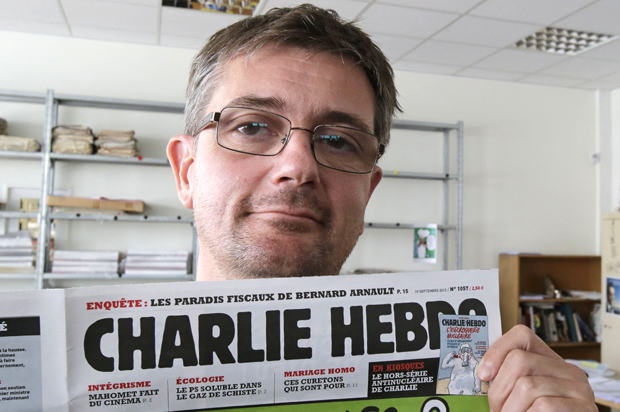Charlie Hebdo, the satirical French magazine that was the victim of a violent terrorist attack in January that left twelve dead, will no longer produce images of the prophet Muhammad, according to its editor Laurent Sourisseau.
Speaking to German magazine Stern, Sourisseau said that the magazine has “done its job” and “defended the right to caricature.”
“We have drawn Muhammad to defend the principle that one can draw whatever they want. It is a bit strange though: we are expected to exercise a freedom of expression that no one dares to,” Sourisseau said.
Still, he said he didn’t want people to perceive the magazine as being “possessed by Islam.”
“The mistakes you could blame Islam for can be found in other religions,” he continued.
Sourisseau survived the violent attack that slayed twelve in the Hebdo offices, including eight of his colleagues and former Editor in Chief Stéphane Charbonnier (Charb), by “playing dead” while the siege occurred. The perpetrators were two Islamic Militants with ties to extremist groups. Al-Qaeda in Yemen took responsibility for the attack, citing the paper’s publishing of blasphemous images of the Prophet.
The violence ignited a heated debate over freedom of speech in the mainstream media, which recently came to a head when a number of novelists pulled out of the PEN American Gala when the organization decided to honor Charlie Hebdo its annual Freedom of Expression Courage Award. While the magazine initially responded to the attacks by holding firm with Hebdo tradition – the first cover had a teary Prophet Muhammad under a sign reading “Tout est pardonné,” or “All is forgiven” — their stance has clearly softened in the wake of the tragedy.
Recently, cartoonist Renald Luzier (a.k.a. Luz) one of the magazine’s surviving cartoonists who drew the iconic “Tout est pardonné” cover, said that drawing Muhammad “no longer interests him” and announced his departure from the magazine.
“The time came when it was just all too much to bear,” said Luzier. “There was next to nobody to draw the cartoons. I ended up doing three or every four front-pages. Each issue is torture because the others are gone. Spending sleepless nights summoning the dead, wondering what Charb, Cabu, Honore, Tignous would have done is exhausting.”

